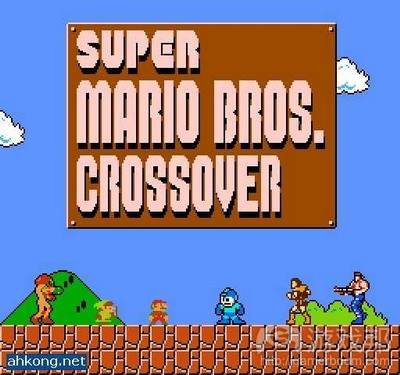论述促使玩家富有满足感的“成就循环”
作为游戏设计师,我常问自己什么令游戏富有趣味。“趣味”一词听起来有些抽象,而且非常主观。电子游戏有众多元素富有趣味:外部环境、令人印象深刻的音效、有趣的故事、有趣的角色及颗粒效应等。但有些游戏包含所有这些元素,但依然不那么有趣。那么究竟是什么元素促使游戏令人满意?游戏满足感来自何处?
我相信大家对此都有不同看法。话虽如此,我对游戏满足感来源的看法一点儿也不抽象。我认为很多游戏开发商都有这样的看法,只是他们没有表达出来。
要令人满意,游戏需要让玩家经历此“成就循环”:
1. 挑战:玩家面临障碍,其克服此障碍的渠道有限。
2. 反复试验:这是辛苦的工作(游戏邦注:让玩家承受一定遭遇非常重要)。玩家试着凭借自己的工具通过各种方式克服障碍。
3. 学习:在尝试使用工具的过程中,玩家也许会遭遇失败,但玩家会学会使用它们。
4. 成功:玩家克服挑战。他觉得自己有所成就,此辛苦工作有所回报。这是玩家享受其中的时刻,他从中感受到满足感。玩家会认为:“是的!我非常擅长这款游戏!”
5. 玩家返回第1点,其中的玩法情境融入更多复杂性/难度。
这看起来有点像秘诀,但其实不是。这能够通过各种方式应用至各类游戏中,但要做好并不容易。
此循环出现在各种经典游戏的细微情况中。让我们将此循环应用至《超级马里奥兄弟》的首个玩法情境中:
1. 挑战:Mario遇到缓缓向其靠近的Goomba。
2. 反复试验:Mario试验各种策略。他径直穿过Goomba,然后死去,或者笨拙地过早跳跃,然后再次死去。
3. 学习:Mario现在更清楚要如何移动和跳跃。
4. 成功:Mario顺利扑向Goomba,弄皱他丑陋的卡其色脸庞。然后取得胜利!
5. 返回:Mario现在将面临更大挑战。
但当游戏没有新鲜内容教给玩家时,它就无法继续循环,因此就会变得重复和单调。
在我看来,很多当前的游戏都无法让玩家保持兴致,因为它们试着通过虚伪方式创造满足感。这类游戏通常让非常强大的角色面临相当简单的玩法情境。所以我们看到的情形是,在体验的头几分钟里,你会觉得自己好像上帝,你会被自己的破坏程度吓到。但不久之后,你就会发现游戏再没有什么新鲜内容,开始令人觉得乏味。更糟的是,当你在游戏中失败时,你无法从中学到什么东西,你觉得自己愚蠢至极,因为你本不应该失败。
此循环呈现很多经典视频游戏所采用的策略:“易上手,难精通”。因为掌握游戏的难度越大,“成就循环”就能够持续越久,保持富有趣味。
游戏邦注:原文发布于2010年3月31日,文章叙述以当时为背景。(本文为游戏邦/gamerboom.com编译,拒绝任何不保留版权的转载,如需转载请联系:游戏邦)
Satisfaction Guaranteed!
As a game developer I always ask myself what makes a game fun. The “fun” word sounds so abstract and is so subjective from one person to another. A lot of things can be fun in a videogame: exotic environments, impressive sound effects, entertaining story, funny characters, particle effects, and so on. However, some games have all of that and can still be not that fun. So what exactly makes a game satisfying? Where does the SATISFACTION come from?
I’m sure everyone has a different vision of this. That being said, my idea of the source of satisfaction in games is not abstract at all. I think that a lot of game developers have this conception too but they simply never put it into words. Here it goes.
To be satisfying, a game has to make the player go through this “achievement loop”:
1. Challenge: The player is facing an obstacle and he has limited means to overcome it.
2. Trial and error: This is the hard work (making the player suffer a bit is very important). The player tries to overcome the obstacle in various ways with the tools he has.
3. Learning: Having tried his tools, and probably failed while trying, the player learned to use them.
4. Success: The player overcomes the challenge. He feels that he accomplished something and that hard work paid off. This is the moment when the player is having fun, he feels satisfaction. The player thinks: “Yeah! I’m good at this game!”
5. Loop back to point 1 with a gameplay situation of increased complexity/difficulty.
This looks like a recipe, but it’s not. It can be applied in many ways in any kind of games, but it’s not necessarily easy to do well.
This loop can be found in micro situations of any classic game. Let’s apply this loop to the very first gameplay situation of Super Mario Bros:
1. Challenge: Mario encounters a Goomba slowly walking towards him.
2. Trial and error: Mario tries various strategies. He walks straight through the Goomba and dies or he clumsily jumps too early and dies again.
3. Learning: Mario now understands better how to move and jump.
4. Success: Mario jumps successfully on the Goomba and crushes his ugly shitake face. He is victorious!
5. Loop back: Mario will now face a greater challenge.
However, when the game has nothing new to teach to the player, it can no longer loop and therefore it becomes repetitive and eventually boring.
In my opinion, a lot of current generation games have problems keeping the player interested because they try to create satisfaction in an artificial manner. The typical game features an overpowered character facing ridiculously simple gameplay situations (because Gameindustryasshole thinks that people only like easy stuff). So what happens is that when playing the game for the first few minutes, you feel like a God, you’re blown away by your own level of badassness. But not long after, when you realize that the game has nothing new to teach, it starts feeling tedious. And worst, when you fail in that game you don’t learn anything and you feel like an idiot because you weren’t supposed to fail.
This loop can also explain the classic or cliché videogame principle tagged to a lot of addicting games: “Easy to learn, hard to master.” Because the hardest a game is to master, the longer the “achievement loop” can go on and still be fun.
I’ve read the book “A Theory of Fun for Game Design” by Raph Koster a while ago. It most certainly influenced this post, so I encourage anyone to read it.(Source:pixeltao)









































